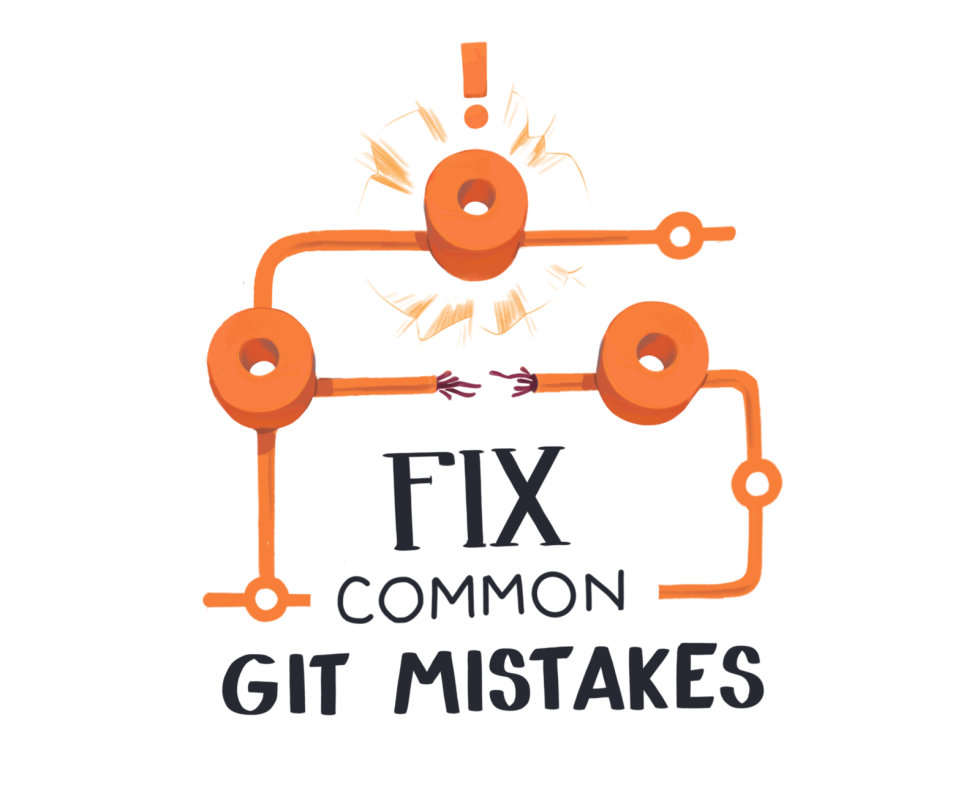Top 10 Most In-Demand Tech Skills to Acquire for 2025
In 2025, technology will continue to evolve at an astonishing pace, and with that comes the growing need for skilled professionals in various high-demand tech areas. Whether you’re looking to shift your career or stay ahead of the curve in your current role, acquiring the right skills will be crucial. In this blog post, we’ll explore the top 10 most in-demand tech skills that will dominate in 2025, providing insights on why they matter and how to master them.
Table of Contents
Toggle1. Artificial Intelligence (AI) and Machine Learning (ML)
AI (Artificial Intelligence) and ML (Machine Learning) will likely remain the backbone of technological advancements in 2025, playing an increasingly central role across industries. These technologies are no longer just about automating repetitive tasks; they are about building intelligent systems that can learn from vast amounts of data, make accurate predictions, and continuously improve themselves. AI and ML enable businesses to unlock valuable insights from data that would otherwise be impossible to analyze manually, offering smarter, more efficient solutions.
In 2025, we will see AI and ML being integral to sectors like healthcare, where they are used for predictive diagnostics, personalized medicine, and drug discovery. Finance will continue to benefit from machine learning in areas like fraud detection, algorithmic trading, and risk assessment. Retail and e-commerce will rely on AI-driven recommendation systems to enhance customer experiences and optimize inventory management. Furthermore, industries like transportation, manufacturing, and entertainment will leverage these technologies for everything from self-driving vehicles to content personalization and automated production lines.
With businesses investing heavily in AI and ML, organizations across the world are striving to stay competitive by adopting these technologies. As a result, AI and ML professionals will be in high demand, making these skills some of the most sought-after in the tech job market. In addition to transforming industries, AI and ML are becoming crucial tools for solving complex global challenges, such as climate change, healthcare accessibility, and the future of work.
Key Skills in AI & ML
Mastering AI and ML requires a deep understanding of several foundational and advanced skills that are essential for building and deploying intelligent systems. If you’re looking to thrive in AI and ML, here’s a breakdown of key areas you should focus on:
-
Data Science: The foundation of both AI and ML lies in data science. Data scientists are responsible for collecting, cleaning, and analyzing data to build meaningful insights. This skill is vital because AI systems rely on high-quality data to make informed predictions.
-
Neural Networks & Deep Learning: At the heart of many AI applications, especially in computer vision and natural language processing, are neural networks. These networks are designed to simulate how the human brain processes information and are the backbone of deep learning. Understanding how to build, train, and optimize neural networks will be critical for anyone working in AI.
-
Algorithms & Optimization: Algorithms drive how AI systems make decisions. Whether it’s sorting through data, making predictions, or optimizing processes, understanding different types of algorithms (e.g., supervised learning, unsupervised learning, reinforcement learning) is essential for building efficient AI models.
-
Natural Language Processing (NLP): NLP involves teaching machines to understand and interpret human language, whether it’s written or spoken. This skill is fundamental for developing AI-powered tools like chatbots, voice assistants (like Siri or Alexa), and language translation systems.
-
Reinforcement Learning: This area of ML focuses on how machines can learn to make decisions by interacting with their environment and receiving feedback. Reinforcement learning is crucial for autonomous systems, including self-driving cars and robotics, as it helps AI systems learn optimal behaviors through trial and error.
By mastering these key skills, you’ll be well on your way to becoming a proficient AI and ML professional, equipped to handle the challenges and opportunities presented by these transformative technologies.
Career Paths in AI & ML
As AI and ML continue to evolve, there will be numerous career opportunities in these fields. From research positions to applied roles in industry, here are some of the most common career paths in AI and ML:
-
AI Researcher: AI researchers focus on advancing the theoretical foundations of AI. This could include developing new algorithms, improving existing AI models, and conducting experiments that push the boundaries of what AI can do. These positions are typically found in academia, research labs, and large tech companies.
-
Machine Learning Engineer: Machine learning engineers build and deploy ML models into production. They design, test, and optimize algorithms to make sure they perform effectively at scale. Their work is essential in ensuring that AI models operate in real-world environments.
-
Data Scientist: Data scientists play a key role in AI and ML by extracting insights from data that are used to train machine learning models. They often work with large datasets and use statistical analysis to find trends and patterns. Their work bridges the gap between business needs and AI applications.
-
AI Product Manager: As AI becomes an integral part of many businesses, product managers who specialize in AI are becoming increasingly sought after. These professionals oversee the development and deployment of AI products and services, managing teams of engineers and researchers while aligning AI technologies with business goals.
-
AI/ML Consultant: Many companies seek external expertise to implement AI and ML solutions. AI/ML consultants work with organizations to design and integrate AI systems into their business processes, helping them leverage these technologies for improved efficiency, scalability, and innovation.
-
AI Software Engineer: AI software engineers develop the software infrastructure needed to support AI systems. They often work with different programming languages such as Python, C++, or Java and are skilled in integrating AI components with existing software.
-
AI Ethics Specialist: As AI continues to grow, the ethical implications of its use are becoming increasingly important. AI ethics specialists work to ensure that AI systems are fair, transparent, and aligned with legal and ethical standards. This is a burgeoning field as companies strive to implement AI in responsible ways.
In addition to these roles, AI and ML professionals can also find positions in AI-powered startups, tech giants, healthcare, automotive industries, and even in government research. The diversity of career paths in this field reflects the increasing ubiquity of AI and ML technologies and the demand for skilled individuals who can help organizations harness their potential. With the right skills and expertise, a career in AI or ML offers tremendous growth prospects, job stability, and an opportunity to make a significant impact on the future of technology.
2. Cloud Computing
The Growing Demand for Cloud Skills
Cloud computing is revolutionizing how businesses store and process data. As businesses move their operations to the cloud, professionals skilled in cloud platforms like Amazon Web Services (AWS), Google Cloud, and Microsoft Azure are in high demand. In 2025, cloud services will continue to be essential, especially for scalability, flexibility, and cost-effective solutions.
Cloud Platforms
Mastering platforms like AWS, Google Cloud, and Azure is crucial for anyone interested in cloud computing. Learning cloud-native technologies, cloud security, and containerization (e.g., Docker, Kubernetes) will also be highly beneficial.
Benefits of Cloud Skills
Cloud professionals enjoy a high degree of flexibility and job security. Cloud solutions help businesses lower infrastructure costs, enhance scalability, and provide better disaster recovery.
3. Cybersecurity
Why Cybersecurity is Essential in 2025
As cyber threats continue to evolve, cybersecurity remains one of the most critical skills for tech professionals. The rise of cyberattacks, ransomware, and data breaches has made protecting sensitive information more important than ever. In 2025, cybersecurity experts will be in high demand as businesses seek to protect their data and maintain trust with customers.
Key Cybersecurity Roles
Security analysts, ethical hackers, and penetration testers will be in demand. These roles focus on identifying vulnerabilities, testing systems for weaknesses, and ensuring that businesses are prepared for potential threats.
Trends in Cybersecurity
The future of cybersecurity involves incorporating AI for threat detection, using blockchain for secure transactions, and ensuring compliance with global data privacy laws.
4. Data Science & Analytics
The Power of Data in Modern Businesses
In 2025, data science will continue to be a key driver for business decisions. Big data and predictive analytics allow businesses to gain deeper insights into customer behavior, market trends, and business performance. With data-driven decision-making becoming more prevalent, the demand for data scientists is expected to grow exponentially.
Skills to Master in Data Science
Learning data mining, data visualization, and predictive analytics will be essential for anyone entering the field of data science. Understanding machine learning and big data platforms like Hadoop and Spark will also give you a competitive edge.
Career Opportunities in Data Science
Data scientists and analysts are needed across industries such as finance, healthcare, e-commerce, and more. You can work as a data scientist, business analyst, or data engineer—roles that are critical in making data actionable for decision-makers.
5. Blockchain Technology
How Blockchain is Transforming Industries
Blockchain technology, best known for its role in cryptocurrencies like Bitcoin, is gaining traction across a wide range of industries. From supply chain management to financial services, blockchain provides secure, transparent, and tamper-proof systems for recording transactions. Its decentralized nature makes it appealing for various business applications, and professionals with blockchain expertise will be in high demand by 2025.
Understanding Blockchain
At its core, blockchain involves a distributed ledger that records transactions across a network of computers. Blockchain professionals should focus on learning about smart contracts, cryptography, and decentralized applications (dApps).
Blockchain Jobs in Demand
Blockchain developers, consultants, and architects will see increased demand as companies look to implement blockchain solutions across their operations.
6. Internet of Things (IoT)
The IoT Revolution and What it Means for 2025
The Internet of Things (IoT) refers to the network of interconnected devices that collect and exchange data. As more devices become “smart” in 2025, the demand for professionals who can design and manage these systems will rise. Whether it’s for smart homes, industrial automation, or healthcare systems, IoT will be a massive part of daily life.
IoT Skills to Focus On
IoT professionals need to be proficient in embedded systems, sensor technology, and network protocols. Familiarity with cloud computing and data analytics will also help professionals manage IoT devices and optimize their performance.
Job Roles in IoT
IoT engineers, data analysts, and system integrators will be needed to handle the massive influx of IoT devices and data. There will also be demand for IoT security specialists to ensure that these devices are secure from cyberattacks.
7. DevOps
The Growing Role of DevOps Engineers
DevOps combines software development (Dev) and IT operations (Ops) to shorten the development lifecycle and ensure the continuous delivery of high-quality software. In 2025, the need for DevOps professionals will grow as more organizations adopt agile methodologies.
Key DevOps Tools
Learning tools like Jenkins, Docker, Kubernetes, and Terraform will help you succeed in the DevOps field. Familiarity with version control systems like Git is also critical for collaborating on software projects.
The Future of DevOps
The future of DevOps will likely include greater automation, containerization, and cloud-native development to improve scalability and reliability in software development.
8. Virtual Reality (VR) & Augmented Reality (AR)
The Role of VR & AR in 2025
Virtual and augmented reality technologies are transforming industries like entertainment, education, healthcare, and retail. By 2025, VR and AR will become more mainstream, providing new ways for businesses to engage customers and enhance user experiences.
VR/AR Skills to Develop
For VR and AR, you’ll need to be familiar with 3D modeling, game engines like Unity or Unreal Engine, and programming languages like C# or C++.
Career Options in VR/AR
Developers, designers, and creative directors with VR/AR skills will be in high demand as the industry grows. These roles allow you to create immersive experiences for consumers and businesses alike.
9. Robotics Process Automation (RPA)
How RPA is Streamlining Operations in Various Industries
Robotics Process Automation (RPA) uses software robots to automate repetitive tasks. In 2025, RPA will play a crucial role in industries like banking, insurance, and customer service, helping businesses increase efficiency and reduce operational costs.
RPA Tools and Skills
To become proficient in RPA, you should learn how to use tools like UiPath, Automation Anywhere, and Blue Prism. Understanding business process mapping and automation strategies will also help.
RPA Job Roles
RPA developers, business analysts, and automation engineers will be needed to design, implement, and maintain RPA systems for businesses.
10. Digital Marketing & SEO
Tech-Savvy Marketing Professionals in Demand
As businesses move online, digital marketing has become a critical component of any marketing strategy. In 2025, businesses will need professionals with skills in SEO, content strategy, and social media marketing to attract and retain customers.
Key Skills in Digital Marketing
Focusing on SEO, content marketing, and data analytics will position you as a valuable asset in the marketing world. Understanding how to use marketing automation tools and Google Analytics will help improve your strategies.
The Future of Digital Marketing
To stay ahead in digital marketing, keeping up with changing algorithms, new platforms, and customer preferences is essential.
Conclusion
As the tech industry continues to grow and evolve, staying ahead of the curve is key. The skills we’ve outlined in this article are not only in-demand today but will be even more crucial in 2025. Technology is advancing at an unprecedented pace, and with it, the opportunities for innovation and career growth. Whether you’re looking to switch careers or grow your expertise, mastering these technologies will put you in a strong position in the job market. By proactively acquiring these skills, you not only future-proof your career but also position yourself as a leader in a highly competitive and ever-changing field.
In 2025, the tech landscape will look vastly different than it does today, and those who stay up-to-date with the latest tools, platforms, and technologies will be the ones driving the next wave of innovation. If you are serious about your career growth, investing time in learning and refining these critical skills is a smart strategy. The tech industry offers boundless opportunities, and the ability to adapt and evolve with emerging trends will be key to staying ahead. So, whether you’re just starting out or are already deep into your career, now is the time to start investing in these tech skills. By doing so, you ensure your relevance and success in an industry that is continually redefining what’s possible.
Stay curious, stay proactive, and take advantage of online courses, certifications, and hands-on projects to build your expertise. Tech jobs often come with attractive salaries and benefits, but they also require commitment and continuous learning. Embrace the challenge, and you’ll be well-positioned to thrive in the ever-expanding world of technology.
Read AlsoCloud Storage vs. External Hard Drive – Which One Saves More?
FAQs
-
What are the most in-demand tech skills for 2025?
-
The top skills include AI & ML, cloud computing, cybersecurity, data science, blockchain, IoT, DevOps, VR/AR, RPA, and digital marketing.
-
-
Why is AI so important for future tech careers?
-
AI powers innovation across industries and is at the forefront of technological advancement, from self-driving cars to personalized healthcare.
-
-
How do I get started with cloud computing?
-
Start by learning about cloud platforms like AWS, Google Cloud, or Azure. Many free resources and certifications are available to help you build your cloud skills.
-
-
What are the best career options in cybersecurity?
-
Roles include security analysts, ethical hackers, and penetration testers, with a focus on protecting data and systems from cyber threats.
-
-
What tools should I learn for DevOps?
-
Popular tools include Docker, Kubernetes, Jenkins, and Terraform, which are essential for automating development and deployment processes.
-




